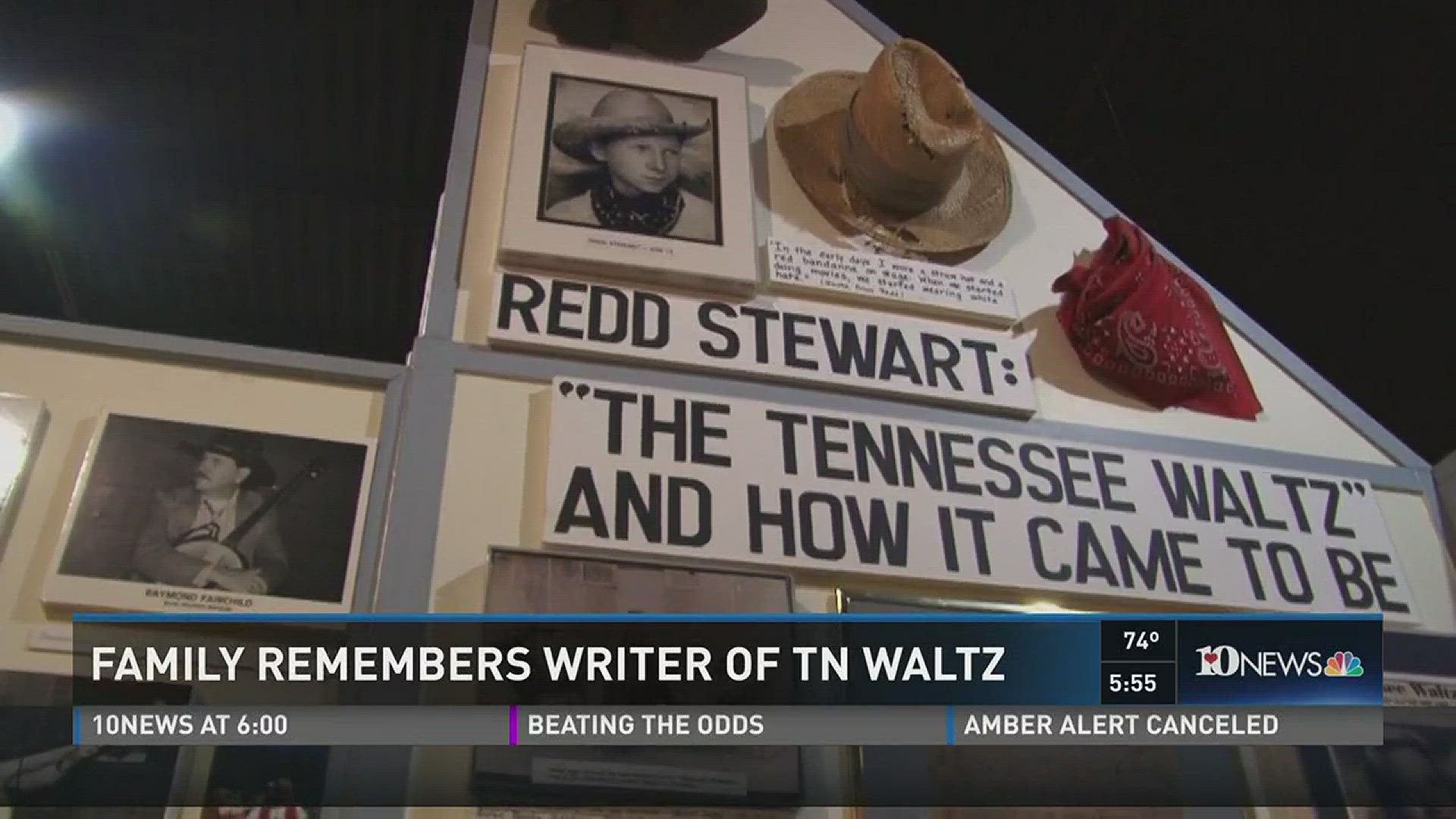For the Stewart family, the Museum of Appalachia's Fall Homecoming is about much more than the music.
"We started out coming as musicians but 31 years later, this is a family reunion,” said Kent Stewart.
"And the food's not bad either!" said his father Billy.
The Stewarts have musical ties with Tennessee dating back to 1946 when Billy's brother Redd wrote the “Tennessee Waltz.”
"Anytime he'd write a new song, he would have me come and listen. 'Come here sis' - he always called me sis,” said Lydia Marrow, Redd’s daughter. “And of course I’d always tell him they were wonderful even thought I was at the age I was into rock ‘n roll full time."
Marrow said “Tennessee Waltz” is not her favorite of her father’s songs. She prefers “You Belong to Me” and “Levi Lady,” which he wrote for her.
She remembers how much Redd traveled touring with Pee Wee King and the Golden West Cowboys.
"He always told me, being gone all the time, that he was with me all the time right in my heart," she said.
It was on one of those road trips when Tennessee's state song came to life.
"Pee Wee told Redd, 'You know you claim to be a songwriter but you've never written a song about your home state, Tennessee!' And Redd said, 'Well, there's no time like the present!'” said Billy.
"Now, Redd smoked cigars and he kept a big box of matches … and he got his pen out and he couldn't think of anything to write on so he took the box, dumped the matches out, tore the cover open and in about 20 minutes, he wrote a song that was called the Tennessee Waltz,” he said.
The song made it into a recording session with the Golden West Cowboys but did not become a hit until a 1950s recording by Patti Page sent it to the top of the charts. At one point, it was the highest selling song in Japan.
It became the Tennessee state song in 1965.
Redd's many performances of the song started on the highway and ended with a trip back to the Museum of Appalachia.
"The very last time he sang the Tennessee Waltz was here on the main stage at the museum," said Kent.
Redd Stewart died in 2003.
Redd and his family live on through an exhibit in the museum. After all these years of playing at the Fall Homecoming, Redd’s nephew Mark Stewart says he and the rest of the family feel the museum is as much a part of them as they are of it.
"I got a feeling they'll just mount us and put us in there somewhere,” he said.

